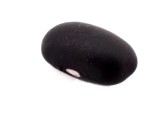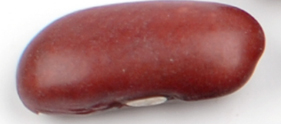Nutrition
Beans and pulses are nutritional balanced protein powerhouses that can easily replace meat as an entrée. They are the ancient protein central to a plant-based vegetarian diet which is why the ANF focuses on them as the protein solution. A balanced omnivore’s diet is high in complex carbohydrates and fiber, low on fat, and a good source of protein. That is an exact description of beans.
Bean Nutrition Facts
Data based on a 1 cup serving of beans that have been cooked from the dry form and drained of cooking liquid. Canned beans will contain more sodium.
|
Type of Bean |
Bean Photo |
Calories |
Protein (g) |
Fat (g) |
Total Carb (g) |
Dietary Fiber (g) |
Sodium (mg) |
Potassium (mg) |
|
Black |
|
228 |
16 |
1.0 |
40 |
16 |
2 |
610 |
|
Cranberry |
|
480 |
16 |
0.8 |
44 |
18 |
2 |
684 |
|
Great Northern |
|
208 |
14 |
0.8 |
38 |
12 |
4 |
692 |
|
Navy |
|
254 |
16 |
1.2 |
48 |
20 |
0 |
708 |
|
Pink |
|
252 |
16 |
0.8 |
48 |
10 |
4 |
858 |
|
Pinto |
|
244 |
16 |
1.2 |
44 |
16 |
2 |
746 |
|
Light Red Kidney |
|
224 |
16 |
0.8 |
40 |
14 |
4 |
714 |
|
Dark Red Kidney |
|
218 |
16 |
0.4 |
38 |
16 |
8 |
670 |
|
White Kidney |
|
248 |
18 |
0.6 |
44 |
12 |
10 |
1004 |
|
Small Red |
|
220 |
12 |
1.0 |
38 |
12 |
2 |
742 |
Dry Beans Are a Good Source Of Complex Carbohydrates
Beans are primarily composed of complex carbohydrates, a dietary starch made up of sugar molecules. This component in beans makes up the majority of the calories in beans and should be the primary source of energy for the human body. Complex carbohydrates are generally a good source of dietary fiber.
Dry Beans Provide Beneficial Dietary Fiber
Dry beans are rich in both soluble and insoluble fibers. Soluble fiber traps dietary cholesterol inside the digestive tract and excrete it versus allowing it to be absorbed. This helps lower blood levels of LDL cholesterol. Dry beans also contain insoluble fiber which attract water to help keep you regular.
Dry Beans Are a Source of Plant-based Protein
Dry beans are a good source of plant-based protein and have therefore been identified as a meat alternative by the USDA food guidance system (USDA Dietary Guidelines, 2010). Beans contain between 21% to 25% protein by weight, which is much higher than other sources of vegetable protein. One cup of cooked Pinto Beans contains 15.4 grams of protein (about 25% of the amount needed by a 150 lb. person).
Dry Beans Contain Essential Vitamins and Minerals
Most beans are good sources of potassium, a mineral that promotes healthy blood pressure levels. In addition to being a good source of copper, phosphorus, manganese, magnesium, they are an excellent source of iron, which makes them important for vegetarians whose iron intake may be compromised by the elimination of animal protein. They are also a good source of the water soluble vitamins thiamin and folic acid and a good source of riboflavin and vitamin B6.









